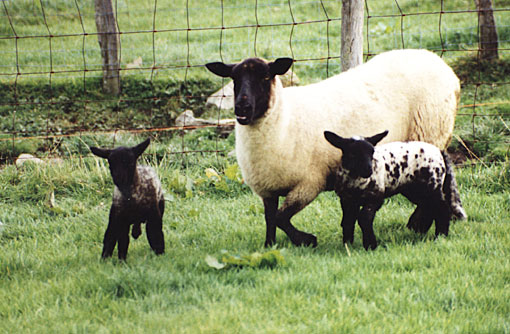Toxovax vaccine supply disrupted for another year

Sheep producers should take every possible step to reduce the risk of toxoplasma infection following news that abortion vaccine supply will be disrupted for another year.
Toxovax vaccine – the only vaccine of its kind on the market – looks set to face another year of disrupted supply following damage to the latest batch during shipment.
Independent vet Kate Hovas said the shortage would particularly affect farmers who were unable to vaccinate replacements last year as they would now require two years’ worth of product. However, there were a number of steps farmers could take to limit the risk of infection.
“Lack of vaccine does make it more difficult to control toxoplasmosis, but it’s important to remember vaccination is part of a general control strategy.”
With breeding cats and kittens providing the main source of infection, keeping these animals away from feed and bedding stores was crucial.
“Cats that are unwell or have low immunity are a particular risk, so the aim should be to have healthy, neutered cats on farm,” she said.
Vet Paul Roger said all farms should strive to have a stable population of neutered cats, particularly considering one teaspoon of cat faeces could potentially contain enough toxoplasma to infect 1,000 ewes.
“Where farmers know cats are passing across grazing land there may also be an argument to graze non-pregnant ewes and gimmers on these pastures to try and build up natural immunity. However, it’s difficult to guarantee infection.”
Mr Roger stressed the importance of speaking to a vet to identify farm-specific risks and a preventive strategy.
Vet John Macfarlane, Alnorthumbria Vets, said decoquinate should also be added to concentrate feed as soon as it is introduced after mid-pregnancy to lower the risk of infection.
Ms Hovas said particularly when a farm was in a vaccination scheme, producers should talk to their vet and discuss whether using decoquinate on the proportion of the flock most at risk would be relevant.
Producers worried about the risk of toxoplasmosis should discuss their flock situation with their vet.
Alasdair King, vet manager for MSD Animal Health, stressed that the reason for this year’s shortage of Toxovax was completely separate to last year.
“This year’s shortage was due to a freak accident in transport. In response to last year’s problems we have invested a lot in improving the manufacture of Toxovax.”
